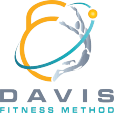CARDIO BURNS MUSCLE?
“Nah man, I can’t do anything besides LISS Cardio because HIIT burns muscle”
Have you ever overheard this conversation in the gym? Or maybe you heard it mentioned in a popular internet blog?
The logic here is that it is suggested that you have an anaerobic system (functions without the presence of oxygen) and you have an aerobic system (functions with the presence of oxygen) and that they essentially are totally opposite things and effectively exist together.
The image that people who talk like this like to paint is “Imagine a marathon runner, super skinny right? Now imagine a Strongman competitor or a Bodybuilder, super built right? That’s because one does lots of cardio and the others do not”
Does that make sense to you? It shouldn’t because you have so much evidence to the contrary. Football Players, Sprinters, Boxers, UFC Fighters, and Crossfit Athlete. All of these athletes have a strong aerobic base and you’d probably also say that they have a sizable amount of muscle tissue.
So what gives? Why do people think you’ll burn off muscle if you start training your aerobic system?
There are a number of reasons someone may think this and I’ll cover a couple here.
First one, they had more body fat than they thought they had and when they started incorporating cardio what they thought was muscle began to disappear. That’s because it was fat and not muscle.
Second one, they attempted an aggressive diet and began to lose copious amounts of weight. This rapid loss in weight for a sustained period of time likely negatively effected sleep, healthy hormone levels, and performance in the gym. These combined factors with the added stress of cardio likely led to some loss in muscle tissue.
It’s unfortunate that his happens to people but what’s even worse is the dialogue that they create surrounding what happened. They have scared generations of future lifter from doing cardio which is to everyones detriment.
How to do it all.
The key to improving is to pick the attribute that you would like to improve the most and program it accordingly. For example if you want to build the most muscle you don’t want to do extreme amounts of daily cardio because it would be more difficult to eat the calories required to support muscle growth. Same goes for improving your cardio, if you wanted to be in amazing aerobic shape you wouldn’t want to do so much strength training that it limits your ability to recover between session and thus limit your output on cardiovascular activity.
That being said you could train cardio and strength at the same time, just think of them on a sliding scale. Which ever attribute is most important to you at his moment should get the majority of the training time (i.e. Strength train 4 session with 3 cardio session if the goal is Strength and potentially vice versa if the opposite is true).
Lets say you wanted to do cardio on a strength training day. You’d likely do your strength session first being that the strength is more likely to be exhausted by the cardio vs the cardio by the strength. That is because the longer the activity the more inherently aerobic that activity is. Same with if you do repeated bouts of an activity, the more rounds the more aerobic it is. This might look like 60 minutes of strength training followed by 10 x 15 second rounds with 45 seconds of rest between rounds. While this is aerobic it wouldn’t be the best cardio for making you the best runner because the skill of running needs to be practiced in order to become a better runner, it would still condition you to perform better than you would had you not done any cardio. Should you choose to run for long periods at a time it might be best to do these at a separate time from your strength training but only if that is feasible given your current schedule.
BALANCE IS KEY
What’s important to keep in mind is that the body actually wants to preserve muscle tissue. So long as you are well rested, eating relatively well with sufficient protein intake (could be a whole other blog but somewhere between .8-1.2grams of protein/lb of bodyweight), keeping overall stress in check, good things can happen.
Your body does not compartmentalize stress. Stress from exercise , relationships, work, diet, lack of sleep, consumption of toxins, lack of calories, ALL STRESS adds up the same. So the worst thing you can do is too much of everything.
In summary,
Be cautious of information that is presented to you that runs counter to things that you have actual reference for. If you have seen it happen, don’t let someone just loosely explain it away. Balance your strength and cardio work but do a little more of whichever you hope to improve. Make sure you are fueling and resting appropriately to support the energy demands of increasing activity.
Big Love,
Steven Davis (Owner of Davis Fitness Method)
